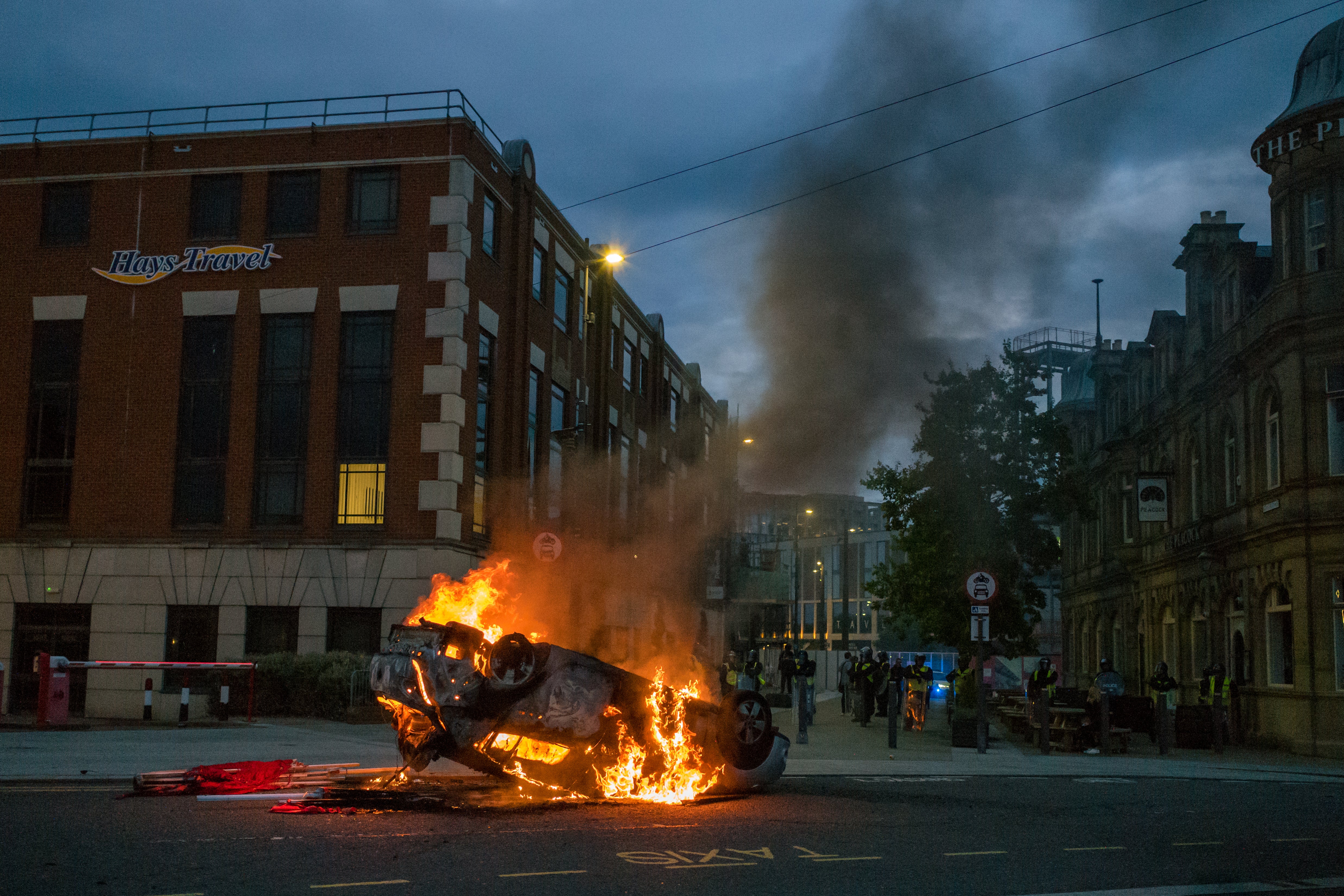Sir Keir Starmer has been resolute in standing against street violence
Editorial: Nigel Farage, on the other hand, has disgraced himself

Something has changed in the past 43 years. In July 1981, when the weather was hot and disaffected young men rioted in Toxteth, Liverpool, some on the left sought to explain or even defend the violence. Unemployment was high, Black people suffered racial discrimination and the police were heavy-handed.
Margaret Thatcher, the prime minister, was having none of it. “Nothing can justify, nothing can excuse and no one can condone the appalling violence we’ve all seen on television which some of our people have actually experienced and so many fear,” she said in a party political broadcast.
Now, the weather is hot and young and not-so-young men are rioting in Southport and other places, and some on the right seek to explain or even defend the violence. It is a “reaction” to “societal decline”, according to Nigel Farage, leader of Reform UK.
Sir Keir Starmer is having none of it. “There is no excuse for violence of any kind and... the government backs the police to take all necessary action to keep our streets safe,” he said on a call with senior ministers on Saturday.
He is right, just as Mrs Thatcher was right four decades ago. Whatever narrative ideologues of left or right try to construct around street violence, “nothing can excuse” it.
One of the narratives promoted by apologists for the rioters of Southport, Hartlepool and Sunderland is that Sir Keir is responsible for “two-tier policing”, meaning that the police treat “left-wing” demonstrators more leniently than “right-wing” ones.
This is the mirror image of the argument made by some on the left in the Eighties that the police treated marches by the National Front differently from those by anti-racists.
Policing can never be perfect, or perfectly even-handed, but generally it was not true then and the opposite is not true now. The basis for the claim of “two-tier policing” is that the police were restrained in their handling of Black Lives Matter demos a few years ago, and of pro-Palestinian marches over the past 10 months.
This is a classic case of starting with an ideological position and looking for evidence to support it. There is a difference between holding an offensive placard, or chanting an offensive rhyme on the one hand, and throwing bricks, overturning cars and setting fire to things on the other.
Again, the policing of pro-Palestinian marches has not always been perfect – as when a counter-protester with a “Hamas Are Terrorists” sign was briefly arrested “for his own protection”.
But anyone who thinks that burning down a Citizens Advice Bureau in Sunderland or throwing bricks at a mosque in Southport is merely the expression of legitimate concerns needs to take themselves off social media for a while.
Of course, people do have legitimate concerns. The murder of three girls at a Taylor Swift dance class in Southport was a harrowing atrocity. But to respond to such bloodshed with violence is inexcusable. People may disagree with immigration policy. They may feel strongly about Gaza, or racism, or the environment – but “nothing can justify, nothing can excuse and no one can condone” violence, in Mrs Thatcher’s words.
Sir Keir has been resolute too. His words to senior ministers, including the deputy prime minister, the home secretary and the justice secretary were clear that violent disorder is very different from the right to free expression. Shabana Mahmood, the justice secretary, seems to have said that space will be found to accommodate those found guilty of violent offences, despite prisons being perilously close to full. Yvette Cooper, the home secretary, said: “Anyone who engages in this kind of disorder needs to be clear that they will pay the price.”
Mr Farage, on the other hand, has misjudged this issue. He said he does not support thuggery, but he followed it with a “but” and an explanation of the violence that sounded to any reasonable person like an attempt to excuse it. We suspect that many of his supporters will be unimpressed. He says he is an admirer of Mrs Thatcher, so if he will not listen to Sir Keir, perhaps he will take his lead from her.






Join our commenting forum
Join thought-provoking conversations, follow other Independent readers and see their replies
Comments